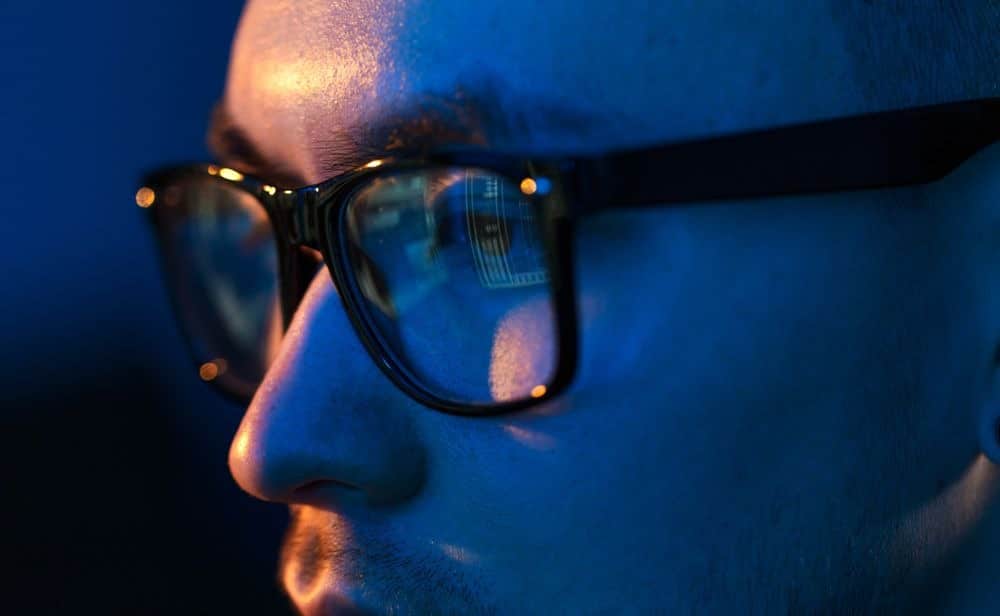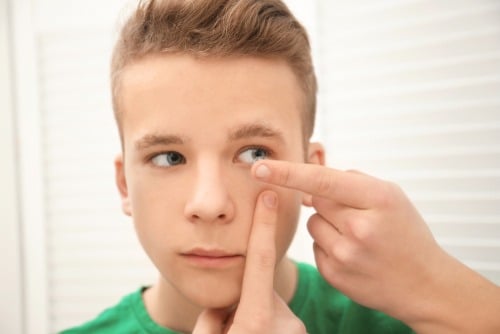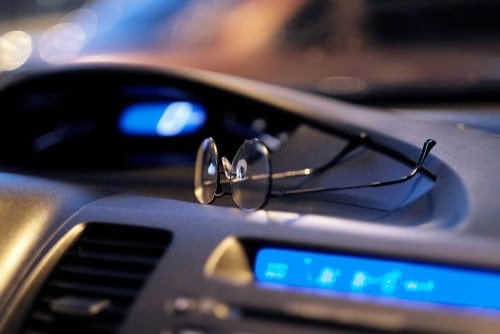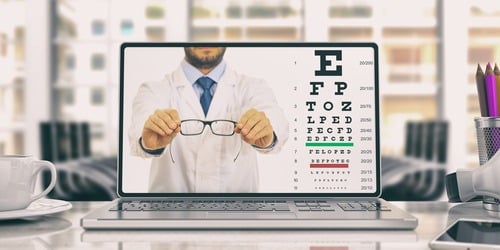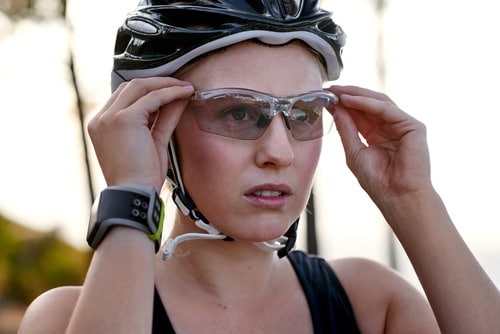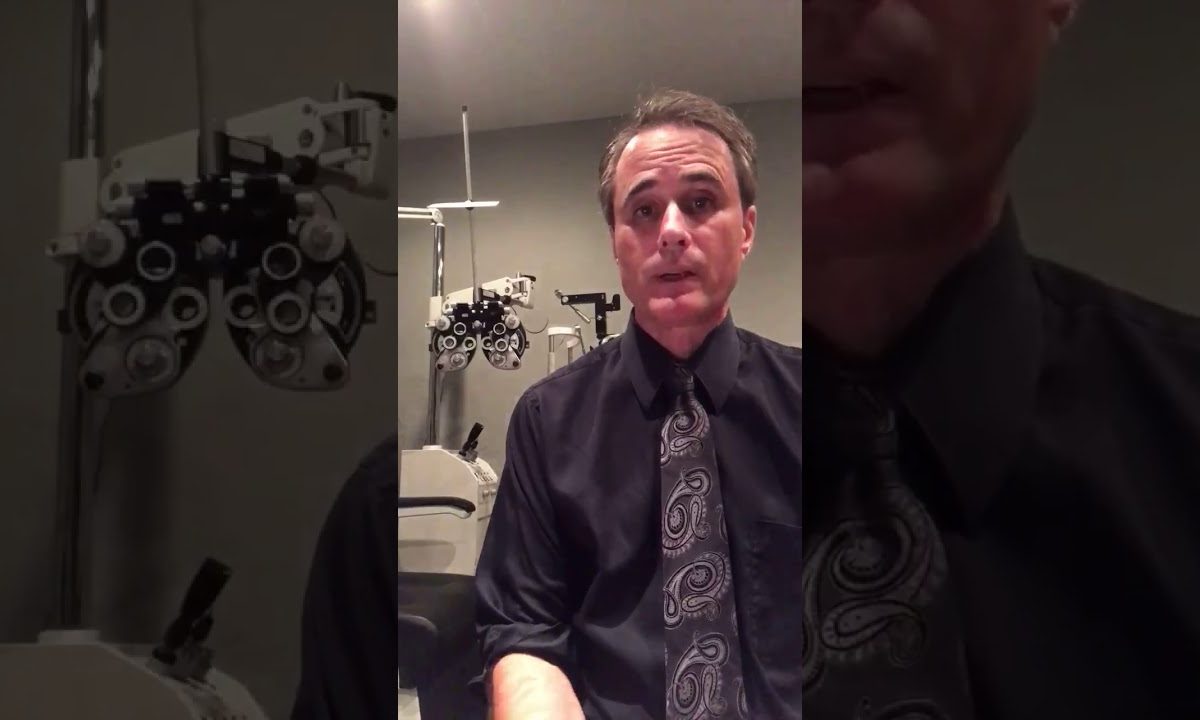How to Get Your Kids to Wear Glasses
Find tips to help your child get excited about wearing eyeglasses & learn about other eyewear to consider, like kids’ blue light glasses, kids’ reading glasses and sports glasses for kids.
How to Get Your Kids to Wear Glasses
For most adults, dealing with moments of embarrassment and things that cause you to feel self-conscious is just a part of life. For a child, dealing with feelings of embarrassment and awkwardness can be anxiety-inducing and even borderline traumatic. That’s why it is so important to work with your kids to explain things in easy to digest terminology – especially when it relates to their health and wellbeing.
When it comes to wearing eyeglasses, this could not be more true.

While the idea of putting glasses on your face every day may seem like a crazy idea to a toddler or young child, it may be necessary to address common eyesight issues, such as nearsightedness, farsightedness, and astigmatism. Additionally, wearing glasses may be an essential tool in helping them advance academically and avoid falling behind in the classroom due to vision problems during their formative years. The key is to properly explain the necessity of eyeglasses to them in ways and terminology that they will understand and embrace.
Why Some Kids Can Be Reluctant or Refuse to Wear Eyeglasses
Granted, some kids may jump at the opportunity to wear glasses that they consider cool or stylish. In these cases, explaining to them how eyeglasses can improve their vision and help them avoid eye problems in the future is a piece of cake.
But for children who find the concept of wearing glasses embarrassing, or downright disconcerting, the process of getting them to comply may prove a bit more difficult. This can be attributed to a number of reasons, from an improper fit to a fear of bullying.
Some of the more common issues include:
- Improper Fit.If your child’s glasses don’t fit just right, they may display more resistance to wearing them consistently.
- If the glasses are too tight, they could hurt their ears or nose, causing them discomfort.
- If the glasses are too loose, they might slip off and become impossible to wear for long periods of time.Making sure a child’s eye doctor checks the fit and size before they wear the eyeglasses avoids this issue and ensures their new eyewear is properly snug in all the right places.
- Fear of Being Teased. Although the idea of wearing glasses has become a bit trendier, many kids may still see them as nerdy or off-putting due to the way they make them stand out. Kids can be very self-conscious if they feel different from their peers, so allowing them to ease into the process and encouraging them throughout the entire course is important to protect their feelings.
- Wrong Prescription. In order to find the right prescription, you need to find a child’s eye doctor so he or she can reassess your child’s vision and conduct the right tests. Tests – like a functional vision test – allows the eye doctor to identify any functional vision problem, if they exist, by properly assessing eye movements, eye focusing, and eye teaming. Once these are appropriately diagnosed or ruled out as functional vision problems, the eye doctor can do further testing to confirm what prescription lenses will optimize your child’s functional vision.
Tips to Help Your Child Get Excited to Wear Glasses
Staying calm and not obsessing over the issue is of the utmost importance when the topic of wearing glasses is brought up. Some resistance or reluctance is to be expected and showing them that their feelings matter empowers them and makes them feel a part of the process – not controlled by it.
Additional tips to help along the way and ease into the transition may include:
- Pick a Child’s Eye Doctor that Suits Your Needs.
Take your time and do you research before picking your child’s eye doctor. The right pediatric eye doctor for your child won’t have any problem putting your child at ease and helping them get comfortable with the idea of wearing glasses. Keep in mind that you’ll most likely need to get those glasses replaced every year or so. Also, you’ll need to bring your child in for regular checkups so the eye doctor can monitor the condition of their eyes; so, ensuring your child is comfortable with the doctor is essential.
- Let Them Help Choose the Frames that Fit their Personality.
The best way to instill a sense of ownership during the process of selecting their glasses is to allow them to pick out their own frames. When the time comes for them to make the big decision, go ahead and plan a special day for the event and even give it a cool name like “frame shopping day.” Most kids enjoy picking out things by themselves because it empowers them and makes them feel involved, so keep patient and allow them to try on as many frames as they want. Picking the perfect pair is not an easy deal!
- Do Not Overreact to their Reluctance.
If your child is upset about the notion of wearing glasses, what they absolutely do not need is for you to get upset. While it may be hard to not snap, remembering to take some deep breaths and remind yourself that teaching the right mindset about their glasses is key. Help them understand right from the get-go that being able to see properly is a gift. That way, they won’t take it for granted and it will help your child understand the importance of wearing their new glasses and taking care of them properly.
Other Eyewear to Consider: Blue Light Glasses, Reading Glasses & Sports Glasses for Kids
Kids Blue Light Glasses
Blue light has been shown to disrupt the body’s circadian rhythm, or the wake-sleep cycle. That means when your child stays up late finishing homework — or watches a movie or plays a video game before bedtime ― it could potentially mess with their sleep cycle and cause minor problems like, headaches or dry eyes.
If you want an extra bit of protection to save you child’s eyes from all the screen time, kids blue light blocking glasses might be helpful for their eyes, too. They work by filtering out the blue light from screens before it reaches your eyes.
Kids Reading Glasses
Finding the right reading glasses is essential for your child’s academic progress and comprehension.
If they struggle to see words or are misdiagnosed and given the wrong prescription, their scholastic progress can suffer tremendously. That is why making sure they receive a proper diagnosis and fitting pair allows them to get acclimated to their readers and ensures they wear them when they need them most.
Sports Glasses for Kids
Just because your child is being active does not mean they can ignore a diagnosed vision issue. In fact, wearing proper sports glasses for kids may become as essential as the right shoes or clothing when playing the sport of their choice.
Their sports glasses can help protect their eyes from dangerous objects while they play, such as fast-moving balls, high-speed racquets in a confined space, and pokes from team players or competitors. Helping your child avoid serious injury and continued vision problems requires planning and preparation, so take the time to choose the right eyewear in all scenarios.
Let’s Make Eyewear Fun and Exciting to Wear for Your Child
At iCare Vision, we see to it that your child’s vision is thoroughly assessed, and they find the experience fun and engaging. If your child is feeling a little anxious about the exam, they can relax and play before they see the doctor in our children’s corner and coloring area in the waiting room. If one of our pediatric eye doctors find that your child would benefit from glasses, your child can pick out cool frames that fit their personality with our collection of children’s frames.

